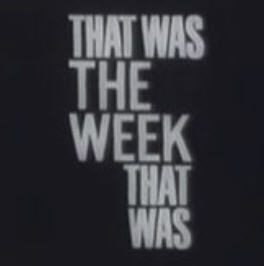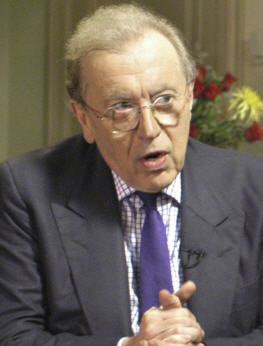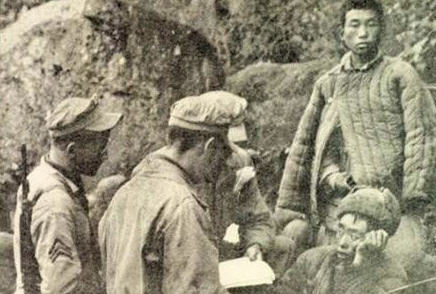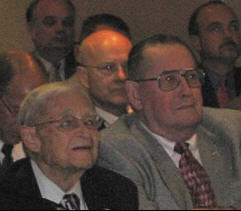
So, the morning mash of fake and unfake news featured the House oversight committees performing the usual antics of the majority- temporary or not- to continue the Russian Collusion Delusion. Candace Owens was pretty impressive, much better than that strange AOC person, in my opinion. But opinions are much like our alimentary systems. Everyone has got one.
But that was not my story of the week, even if I had to pick one. The balance on the titanic struggle over the American electoral system paled in comparison with a little ritual in which we all participate. The President invited a handful of still-alive WWII vets to the Oval Office. It was inspirational, those old men, and brought home the fact that the last of the Doolittle Raiders passed at the ripe age of 103 this week.
Remember back in the day? When irreverent television programming was just starting? I know several of you loyal readers do not. We had not even had the Detroit riots of 1967 yet. That was interesting.
So was “That Was the Week That Was” (informally TW3), was an then-edgy satirical television comedy program on BBC TV in 1962 and 1963. You know, before they killed Kennedy. It was devised by a fellow named Ned Sherrin and presented by David Frost, one of the first transatlantic media figures.
Remember that? If you don’t, never mind. It is about to be something that doesn’t matter any more than what is going on today, and we forget much more quickly today.
An American version of the T3 show by the same name aired on NBC from 1964 to 1965, and also featuring Frost, cementing his place in the media firmament.
But seeing the respect and honor accorded to the dwindling number of people who served in the real war against fascism caused me to think about the next wave of brief memory to come, and it is not far off.
My best pal’s dad was a Pacific Dogface in the big one, and got recalled for duty when the Korean adventure began. My Dad sweated a recall to fly against the NORKS. Uncle Harold had been a damn good flamethrower for the the First Marines at Peleliu, and he got the chance to put on the uniform again and teach kids how to do it.

(David Frost)
So I got to drifting through the aisles of memory. I was sitting in the Alert Center at Yongsong Garrison in Seoul a long time ago, muddling through a night shift with the usual North Korean bullshit.
An older gentleman was a guest of the United Nations command, and he was walking around the floor-to-ceiling maps covered in plexiglass that we could write on with grease pencil to track military movements. The gentleman kept looking toward the ceiling, and I got up from behind the three- position watch console to help him find the DMZ.
Turned out the retired Marine colonel was looking for the position his unit held before the Chinese entered the conflict. He had been looking down at the Yalu River back then, all the way North to look at China, and I apologized profusely.
Then we went back to looking at the DMZ. It was not until I got back to Washington years later that I was privileged to work with John Guenther, assistant head of Marine Intelligence. They had civilized the position, but John was a retired Lieutenant Colonel, having risen from Private.
And it was as a junior enlisted man that he experienced the agony of the Chosin Reservoir, the next thing we are going to forget.
If the Army and the Navy
Ever look on Heaven’s Scenes
They will find the streets well-guarded by
The United States Marines.”
We colloborated on an article about his experience. If you have not experienced the brutal cold of a Northeast Asia winter, you cannot fully experience what it was like to be surrounded in it, and under fire. The death notice for John appeared in the Washington Post the next year, and Mac Showers tipped me off. His hobby in later years was seeing who he had outlasted, something I am beginning to appreciate.
I scanned the orbit that Mac sent but there was not much in it, except the personal information about his family.
John’s family was a lot larger than just those of his blood. In fact, it is more than a Corps.
Mike Decker, who relieved John at USMC HQ, commented on a long and distinguished career this way: “John Guenther enlisted in the Marine Corps in January 1948. In September 1950, Corporal Guenther landed at Inchon with the Seventh Marines. In November and December, Sergeant Guenther was in the S2 (intelligence officer) during the Chosin Reservoir battle.”

(This photo is from the first week of November 1950 during the battle with Chinese forces at Sudong-ni. Sergeant John Guenther is on the left.)
“He served other challenging/tough tours in Cuba, Vietnam, and East Germany. He was a great Marine who embodied the full measure and meaning of Semper Fidelis. John served more than thirty years in the Marine Corps and, upon retirement, continued to serve in a civilian capacity, rising to the civilian equivalent of BGen and serving as the Assistant Director of Marine Corps Intelligence.”
That is where I first met John, in the mid-1980s, in the old thread-bare Navy Annex on the bluff above the Pentagon. He was a legend even then. Based on his contributions to the Marine Corps across six decades, which included active duty and service as the senior USMC civilian, he is widely credited as the Father of modern Marine Intelligence.

(Mac, left, and John, right).
I had a chance to work with John on an article he did on Strategic Surprise during the North Korean and Chinese invasions of the South. He described his reaction at seeing his first dead North Koreans hanging from the barrel of an old Soviet tank, and just how cold it was walking out of Frozen Chosin.
The article was part of something larger John wanted to complete before his tour was over. Mac said that John had completed and submitted to Marine Corps Headquarters a thorough history of Marine Corps intelligence, a project that he has worked on for the past several years.
We are currently doing the same polka with the last of the WWII vets that I remember doing with the last of the Civil War-era bugle boys who lingered in life through the early 1960s. It is absurd to suggest we should never forget something that has already been forgotten. We saw that in this week’s political discourse, with an elected Member of Congress referred to the 9/11 attacks as “someone did something.”
Screw it. I was at the Pentagon that morning. I will never forget, like John never forgot about what happened at the Chosin Reservoir.
Semper Fideles, John. Meanwhile, I am getting too long in the tooth to fight my way off the property, and suspect I will not be invited to the White House thirty years from now for a last farewell to valor expended a long time ago.
John, we will always remember you, and your cohort of those who went. Always Faithful.
Semper Fidelis. Until we forget.
Copyright 2019 Vic Socotra
www.vicsocotra.com
